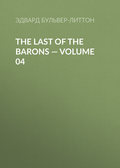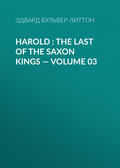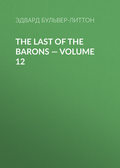
Эдвард Бульвер-Литтон
Zicci — Volume 02
"'Yield,' cried I, 'your life shall be safe.'
"'Take that,' said he, and whiz went the pistol; but the saints took care of their own, and the ball passed by my cheek, and shot the boatswain behind me. I closed with the captain, and the other pistol went off without mischief in the struggle; such a fellow he was, six feet four without his shoes! Over we went, rolling each on the other. Santa Maria!—no time to get hold of one's knife. Meanwhile, all the crew were up, some for the captain, some for me; clashing and firing, and swearing and groaning, and now and then a heavy splash in the sea! Fine supper for the sharks that night! At last old Bilboa got uppermost: out flashed his knife; down it came, but not in my heart. No! I gave my left arm as a shield, and the blade went through and through up to the hilt, with the blood spirting up like the rain from a whale's nostril. With the weight of the blow the stout fellow came down, so that his face touched mine; with my right hand I caught him by the throat, turned him over like a lamb, signor, and faith it was soon all up with him; the boatswain's brother, a fat Dutchman, ran him through with a pike.
"'Old fellow,' said I, as he turned up his terrible eye to me, 'I bear you no malice, but we must try to get on in the world, you know.' The captain grinned and gave up the ghost. I went upon deck; what a sight! Twenty bold fellows stark and cold, and the moon sparkling on the puddles of blood as calmly as if it were water. Well, signor, the victory was ours, and the ship mine; I ruled merrily enough for six months. We then attacked a French ship twice our size; what sport it was! And we had not had a good fight so long we were quite like virgins at it! We got the best of it, and won ship and cargo. They wanted to pistol the captain: but that was against my laws; so we gagged him, for he scolded as loud as if we were married to him; left him and the rest of his crew on board our own vessel, which was terribly battered: clapped our black flag on the Frenchman's, and set off merrily, with a brisk wind in our favor. But luck deserted us on forsaking our own dear old ship. A storm came on; a plank struck; several of us escaped in the boats; we had lots of gold with us, but no water. For two days and two nights we suffered horribly: but at last we ran ashore near a French seaport; our sorry plight moved compassion, and as we had money we were not suspected; people only suspect the poor. Here we soon recovered our fatigues, rigged ourselves out gayly, and your humble servant was considered as noble a captain as ever walked deck. But now, alas, my fate would have it that I should fall in love with a silk-mercer's daughter. Ah! how I loved her,—the pretty Clara! Yes, I loved her so well, that I was seized with horror at my past life; I resolved to repent, to marry her, and settle down into an honest man. Accordingly, I summoned my messmates, told them my resolution, resigned my command, and persuaded them to depart. They were good fellows; engaged with a Dutchman, against whom I heard afterwards they made a successful mutiny, but I never saw them more. I had two thousand crowns still left; with this sum I obtained the consent of the silk-mercer, and it was agreed that I should become a partner in the firm. I need not say that no one suspected I had been so great a man, and I passed for a Neapolitan goldsmith's son instead of a cardinal's. I was very happy then, signor, very,—I could not have harmed a fly. Had I married Clara I had been as gentle a mercer as ever handled a measure."
The bravo paused a moment, and it was easy to see that he felt more than his words and tone betokened. "Well, well, we must not look back at the Past too earnestly,—the sun light upon it makes one's eyes water. The day was fixed for our wedding, it approached; on the evening before the appointed day, Clara, her mother, her little sister, and myself were walking by the port, and as we looked on the sea I was telling them old gossip tales of mermaids and sea-serpents,—when a red-faced bottle- nosed Frenchman clapped himself right before me, and placing his spectacles very deliberately astride his proboscis, echoed out, 'Sacre, mille tonnerres! This is the damned pirate that boarded the "Niobe"!'
"None of your jests,' said I, mildly. 'Ho, ho,' said he. 'I can't be mistaken. Help there,' and he gripped me by the collar. I replied, as you may suppose, by laying him in the kennel; but it would not do. The French captain had a French lieutenant at his back, whose memory was as good as his master's. A crowd assembled; other sailors came up; the odds were against me. I slept that night in prison; and, in a few weeks afterwards, I was sent to the galleys. They had spared my life because the old Frenchman politely averred that I had made my crew spare his. You may believe that the oar and the chain were not to my taste. I, and two others, escaped; they took to the road, and have, no doubt, been long since broken on the wheel. I, soft soul, would not commit another crime to gain my bread, for Clara was still at my heart with her soft eyes; so, limiting my rogueries to the theft of a beggar's rags, which I compensated him by leaving my galley attire instead, I begged my way to the town where I left Clara. It was a clear winter's day when I approached the outskirts of the town. I had no fear of detection, for my beard and hair were as good as a mask. Oh, Mother of Mercy! there came across my way a funeral procession! There, now, you know it. I can tell you no more. She had died, perhaps of love, more likely of shame. Do you know how I spent that night? I will tell you; I stole a pickaxe from a mason's shed, and, all alone and unseen, under the frosty heavens I dug the fresh mould from the grave; I lifted the coffin; I wrenched the lid, I saw her again—again. Decay had not touched her. She was always pale in her life! I could have sworn she lived! It was a blessed thing to see her once more,—and all alone too! But then at dawn, to give her back to the earth,—to close the lid, to throw down the mould, to hear the pebbles rattle on the coffin,—that was dreadful! Signor, I never knew before, and I don't wish to think now, how valuable a thing human life is. At sunrise I was again a wanderer; but now that Clara was gone my scruples vanished, and again I was at war with my betters. I contrived, at last, at O—, to get taken on board a vessel bound to Leghorn, working out my passage. From Leghorn I went to Rome, and stationed myself at the door of the cardinal's palace. Out he came,—his gilded coach at the gate. "'Ho, father,' said I, 'don't you know me?'
"'Who are you?'
"'Your son,' said I, in a whisper.
"The cardinal drew back, looked at me earnestly, and mused a moment. 'All men are my sons,' quoth he then, very mildly; 'there is gold for thee. To him who begs once, alms are due; to him who begs twice, jails are open. Take the hint and molest me no more. Heaven bless thee!' With that he got into his coach and drove off to the Vatican. His purse, which he had left behind, was well supplied. I was grateful and contented, and took my way to Terracina. I had not long passed the marshes, when I saw two horsemen approach at a canter.
"'You look poor, friend,' said one of them, halting; 'yet you are strong.'
"'Poor men and strong are both serviceable and dangerous, Signor Cavalier.'
"'Well said! follow us.'
"I obeyed and became a bandit. I rose by degrees; and as I have always been mild in my calling, and have taken purses without cutting throats, bear an excellent character, and can eat my macaroni at Naples without any danger to life and limbs. For the last two years I have settled in these parts, where I hold sway, and where I have purchased land. I am called a farmer, signor; and I myself now only rob for amusement, and to keep my hand in. I trust I have satisfied your curiosity. We are within a hundred yards of the castle."
"And how," asked the Englishman, whose interest had been much excited by his companion's narrative, "and how came you acquainted with my host? and by what means has he so well conciliated the goodwill of yourself and your friends?"
Maestro Paulo turned his black eyes gravely towards his questioner. "Why, signor," said he, "you must surely know more of the foreign cavalier with the hard name than I do. All I can say is, that about a fortnight ago I chanced to be standing by a booth in the Toledo at Naples, when a sober-looking gentleman touched me by the arm, and said, 'Maestro Paulo, I want to make your acquaintance; do me the favor to come into yonder tavern.' When we were seated, my new acquaintance thus accosted me: 'The Count d' O— has offered to let me hire his old castle near B—. You know the spot?'
"'Extremely well; no one has inhabited it for a century at least; it is half in ruins, signor. A queer place to hire; I hope the rent is not heavy.'
"'Maestro Paulo,' said he, 'I am a philosopher, and don't care for luxuries. I want a quiet retreat for some scientific experiments. The castle will suit me very well, provided you will accept me as a neighbor, and place me and my friends under your special protection. I am rich; but I shall take nothing to the castle worth robbing. I will pay one rent to the count, and another to you.'
"With that we soon came to terms, and as the strange signor doubled the sum I myself proposed, he is in high favor with all his neighbors. We would guard the old castle against an army. And now, signor, that I have been thus frank, be frank with me. Who is this singular cavalier?"
"Who?—he himself told you, a philosopher."
"Hem! Searching for the philosopher's stone, eh? A bit of a magician; afraid of the priests?"
"Precisely. You have hit it."
"I thought so; and you are his pupil?"
"I am."
"I wish you well through it," said the robber, seriously, and crossing himself with much devotion; "I am not much better than other people, but one's soul is one's soul. I do not mind a little honest robbery, or knocking a man on the head if need be,—but to make a bargain with the devil!—Ah! take care, young gentleman, take care."
"You need not fear," said Glyndon, smiling; "my preceptor is too wise and too good for such a compact. But here we are, I suppose. A noble ruin! A glorious prospect!"
Glyndon paused delightedly, and surveyed the scene before and below with the eye of a poet and a painter. Insensibly, while listening to the bandit, he had wound up a considerable ascent, and now he was upon a broad ledge of rock covered with mosses and dwarf shrubs. Between this eminence and another of equal height, upon which the castle was built, there was a deep but narrow fissure, overgrown with the most profuse foliage, so that the eye could not penetrate many yards below the rugged surface of the abyss; but the profoundness might well be conjectured by the hoarse, low, monotonous sound of waters unseen that rolled below, and the subsequent course of which was visible at a distance in a perturbed and rapid stream that intersected the waste and desolate valleys. To the left, the prospect seemed almost boundless; the extreme clearness of the purple air serving to render distinct the features of a range of country that a conqueror of old might have deemed in itself a kingdom. Lonely and desolate as the road which Glyndon had passed that day had appeared, the landscape now seemed studded with castles, spires, and villages. Afar off, Naples gleamed whitely in the last rays of the sun, and the rose-tints of the horizon melted into the azure of her glorious bay. Yet more remote, and in another part of the prospect, might be caught, dim and shadowy, and backed by the darkest foliage, the ruined village of the ancient Possidonia. There, in the midst of his blackened and sterile realms, rose the dismal Mount of Fire; while, on the other hand, winding through variegated plains, to which distance lent all its magic, glittered many a stream, by which Etruscan and Sybarite, Roman and Saracen and Norman, had, at intervals of ages, pitched the invading tent. All the visions of the past the stormy and dazzling histories of Southern Italy—rushed over the artist's mind as he gazed below. And then, slowly turning to look behind, he saw the gray and mouldering walls of the castle in which he sought the secrets that were to give to hope in the Future a mightier empire than memory owns in the Past. It was one of those baronial fortresses with which Italy was studded in the earlier middle ages, having but little of the Gothic grace of grandeur which belongs to the ecclesiastical architecture of the same time; but rude, vast, and menacing even in decay. A wooden bridge was thrown over the chasm, wide enough to admit two horsemen abreast; and the planks trembled and gave back a hollow sound as Glyndon urged his jaded steed across.
A road that had once been broad, and paved with rough flags, but which now was half obliterated by long grass and rank weeds, conducted to the outer court of the castle hard by; the gates were open, and half the building in this part was dismantled, the ruins partially hid by ivy that was the growth of centuries. But on entering the inner court, Glyndon was not sorry to notice that there was less appearance of neglect and decay: some wild roses gave a smile to the gray walls; and in the centre there was a fountain, in which the waters still trickled coolly, and with a pleasing murmur, from the jaws of a gigantic triton. Here he was met by Mejnour with a smile.
"Welcome, my friend and pupil," said he; "he who seeks for Truth can find in these solitudes an immortal Academe."







